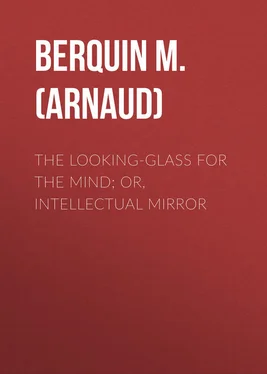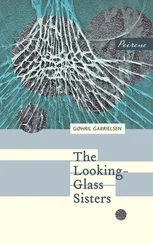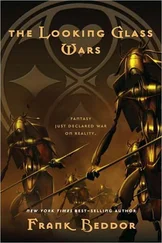M. (Arnaud) Berquin - The Looking-Glass for the Mind; or, Intellectual Mirror
Здесь есть возможность читать онлайн «M. (Arnaud) Berquin - The Looking-Glass for the Mind; or, Intellectual Mirror» — ознакомительный отрывок электронной книги совершенно бесплатно, а после прочтения отрывка купить полную версию. В некоторых случаях можно слушать аудио, скачать через торрент в формате fb2 и присутствует краткое содержание. Жанр: foreign_antique, foreign_prose, на английском языке. Описание произведения, (предисловие) а так же отзывы посетителей доступны на портале библиотеки ЛибКат.
- Название:The Looking-Glass for the Mind; or, Intellectual Mirror
- Автор:
- Жанр:
- Год:неизвестен
- ISBN:нет данных
- Рейтинг книги:4 / 5. Голосов: 1
-
Избранное:Добавить в избранное
- Отзывы:
-
Ваша оценка:
- 80
- 1
- 2
- 3
- 4
- 5
The Looking-Glass for the Mind; or, Intellectual Mirror: краткое содержание, описание и аннотация
Предлагаем к чтению аннотацию, описание, краткое содержание или предисловие (зависит от того, что написал сам автор книги «The Looking-Glass for the Mind; or, Intellectual Mirror»). Если вы не нашли необходимую информацию о книге — напишите в комментариях, мы постараемся отыскать её.
The Looking-Glass for the Mind; or, Intellectual Mirror — читать онлайн ознакомительный отрывок
Ниже представлен текст книги, разбитый по страницам. Система сохранения места последней прочитанной страницы, позволяет с удобством читать онлайн бесплатно книгу «The Looking-Glass for the Mind; or, Intellectual Mirror», без необходимости каждый раз заново искать на чём Вы остановились. Поставьте закладку, и сможете в любой момент перейти на страницу, на которой закончили чтение.
Интервал:
Закладка:
The next morning the honest labourer, overwhelmed with sorrow, went to a neighbouring physician, and begged of him, as a charity, to come and see his poor boy. Though the physician was sure of never being paid for his visit, yet such were his humanity and feelings, that he instantly went to the labourer's house.
On his arrival there, he found no particular symptoms of illness, though the boy was evidently in a very low and languishing state. The doctor told him he would send him a cordial draught; but Harry begged he would forbear sending him any thing, as he could do him no good. The doctor was a little angry at this behaviour, and insisted on knowing what his disorder was, threatening him, if he did not tell him immediately, he would go and acquaint his father with his obstinacy.
Poor Harry begged the doctor would say nothing about it to his father, which still more increased the doctor's wish to get at the bottom of this mystery. At last poor Harry, finding the doctor resolute, desired his brothers and sisters might leave the room, and he would acquaint him with every particular.
As soon as the physician had sent the children out of the room, "Alas! Sir," said little Harry, "in this season of scarcity, my poor dear father cannot earn bread enough to feed us. What little quantity he can get, he divides equally among us, reserving to himself the smallest part. To see my dear brothers and sisters suffer hunger is more than I can bear; and, as I am the eldest, and stronger than they, I have therefore not eaten any myself, but have divided my share among them. It is on this account that I pretended to be sick and unable to eat; I beseech you, however, to keep this a secret from my father."
The physician, wiping away a tear which started involuntarily from his eye, asked poor Harry if he were not then hungry. He acknowledged indeed that he was hungry; but said that did not give him so much affliction as to see the distresses of his family. "But my good lad," said the doctor, "if you do not take some nourishment, you will die." – "I am indifferent about that," replied Harry, "since my father will have then one mouth less to feed, and I shall go to heaven, where I will pray to God to assist my dear father, and my little sisters and brothers."
What heart but must melt with pity and admiration at the relation of such facts? The generous physician, taking up Harry in his arms, and clasping him to his bosom, "No, my dear little boy," said he, "thou shalt not die. God and I will take care of thy little family; and return thanks to God for having sent me hither. I must leave you for the present, but I will soon return."
The good physician hastened home, and ordered one of his servants to load himself with refreshments of every kind. He then hastened to the relief of poor Harry and his starving brothers and sisters. He made them all sit down at the table, and eat till they were perfectly satisfied. What could be a more pleasing scene, than that which the good physician then beheld, six pretty little innocent creatures smiling over the bounty of their generous and humane friend?
The doctor, on his departure, desired Harry to be under no uneasiness, as he should take care to secure them a supply of whatever might be wanting. He faithfully performed his promise, and they had daily cause of rejoicing at his bounty and benevolence. The doctor's generosity was imitated by every good person, to whom he related the affecting scene. From some they received provisions, from some money, and from others clothes and linen. So that, in a short time, this little family, which was but lately in want of every thing, became possessed of plenty.
Bertrand's landlord, who was a gentleman of considerable fortune, was so struck with the tender generosity of little Harry that he sent for his father, and paying him many compliments on his happiness of having such a son, he offered to take Harry under his own inspection, and bring him up in his own house. This matter being agreed on, Bertrand's landlord settled an annuity on him, promising, at the same time, to provide for his other children as they grew up. Bertrand, transported with joy, returned to his house, and falling on his knees, offered up his most grateful thanks to that good God, who had graciously condescended to bestow on him such a son!
Hence you may learn, my young readers, how much you have it in your power to prove a blessing to your parents, and a comfort to yourselves. It is not necessary, that, in order to do so, you should be reduced to the same necessity that poor Harry was: for, however exalted your station may be, you will always find opportunities enough to give proofs of your duty to your parents, your affection for your brothers and sisters, and your humanity and benevolence to the poor and needy. Happy indeed are those poor children, who have found a friend and protector when they were needful and helpless; but much happier those who, without ever feeling the griping hand of penury and want themselves, have received the inexpressible delight that never fails to arise from the pleasing reflection of having raised honest poverty to happiness and plenty.
NANCY AND HER CANARY BIRD, POOR CHERRY
As Nancy was one day looking out of her window, a man happened to come by, crying, "Canary-birds; come, buy my Canary-birds." The man had a large cage upon his head, in which the birds hopped about from perch to perch, and made Nancy quite in love with them. "Will you buy a pretty bird or two, Miss?" said the man. "I have no objection," replied the little maid, "provided my papa will give me leave. If you will stop a little while, I will soon let you know." So away ran Nancy down stairs to her papa, while the birdman put down his cage at the door.
Nancy ran into her papa's chamber quite out of breath, crying, "O dear papa, only come here! here is a man in the street that has a large cage on his head, with, I dare say, a hundred Canary-birds in it." – "Well, and what of all that?" replied her papa; "why does that seem to rejoice you so much?" Nancy answering, that she should be happy to buy one of them; her papa reminded her, that the bird must be fed, and should it be neglected, even only for a day, it would certainly die.
Nancy promised that she would never eat her own breakfast till she had given her bird his; but her papa reminded her that she was a giddy girl, and that he feared she had promised too much. However, there was no getting over her coaxings and wheedlings, so that her papa was at last obliged to consent that she should buy one.
He then took Nancy by the hand, and led her to the door, where the man was waiting with his birds. He chose the prettiest Canary-bird in it: it was a male, of a fine lively yellow colour, with a little black tuft upon his head. Nancy was now quite cheerful and happy, and pulling out her purse, gave it to her father to pay for the bird. But what was to be done with the bird without a cage, and Nancy had not money enough? However, upon her promising that she would take great care to feed her bird, her papa bought her a fine new cage, of which he made her a present.
As soon as Nancy had given her Canary-bird possession of his new palace, she ran about the house, calling her mamma, her brothers and sisters, and all the servants, to come and see her pretty Canary-bird, to which she gave the name of Poor Cherry. When any of her little friends came to see her, the first thing she told them was, that she had one of the prettiest Canary-birds in the world. "He is as yellow as gold," said she, "and he has a little black crest, like the plumes of my mamma's hat. Come, you must go and see him! His name is Cherry."
Cherry was as happy as any bird need wish to be, under the care of Nancy. Her first business every morning was to feed Cherry: and whenever there was any cake at table, Cherry was sure to come in for a share of it. There were always some bits of sugar in store for him, and his cage was constantly decorated with the most lively herbage.
Читать дальшеИнтервал:
Закладка:
Похожие книги на «The Looking-Glass for the Mind; or, Intellectual Mirror»
Представляем Вашему вниманию похожие книги на «The Looking-Glass for the Mind; or, Intellectual Mirror» списком для выбора. Мы отобрали схожую по названию и смыслу литературу в надежде предоставить читателям больше вариантов отыскать новые, интересные, ещё непрочитанные произведения.
Обсуждение, отзывы о книге «The Looking-Glass for the Mind; or, Intellectual Mirror» и просто собственные мнения читателей. Оставьте ваши комментарии, напишите, что Вы думаете о произведении, его смысле или главных героях. Укажите что конкретно понравилось, а что нет, и почему Вы так считаете.











